What Skincare Products Are Good for Rosacea
recommended by experts
The Best Skin-Care Products for Redness and Rosacea, According to Dermatologists
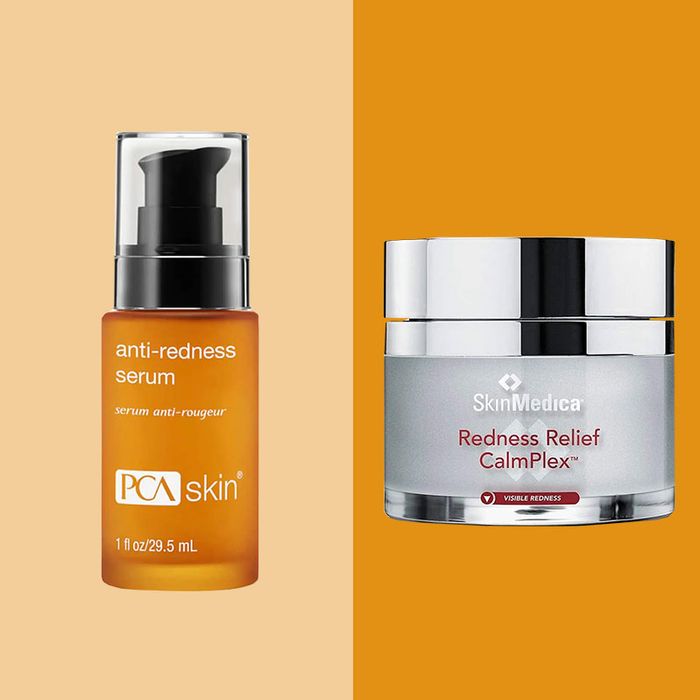
Photo-Illustration: retailers
Dealing with red, reactive skin and rosacea — a chronic condition where skin is overly sensitive, often with visible blood vessels and raised bumps on the face — usually means tiptoeing around anything that could trigger a flare-up. The problem is that virtually "anything that makes the face flush can cause a rosacea flare," says dermatologist Joshua Zeichner, the director of cosmetic and clinical research in dermatology at Mount Sinai Hospital.
Common triggers include stress, extreme temperatures, spicy foods, fragrance, alcohol in skin care, and alcoholic drinks (especially wine) says dermatologist Debra Jaliman, an assistant professor of dermatology at Mount Sinai's Icahn School of Medicine. Even hot showers and skin-care acids can worsen symptoms. Constant rubbing and friction (like from frequent mask wearing) can also cause a flare-up says Skin Wellness Dermatology founder and dermatologist Dr. Corey L. Hartman, who has noticed an uptick in flare-ups since the beginning of the pandemic. But there are ways to tame outbreaks and lessen their effects, so we asked 11 dermatologists and estheticians for their advice. They all recommend avoiding products with fragrances or alcohols and to be careful with potential irritants, like acids and physical exfoliants. Instead, look for products suited for sensitive skin and rosacea, and stock up on skin care that contains hyaluronic acid, azelaic acid, and niacinamide. Below are some specific products — from creams and cleansers to tinted primers and sunscreen — that might calm and camouflage inflamed skin.
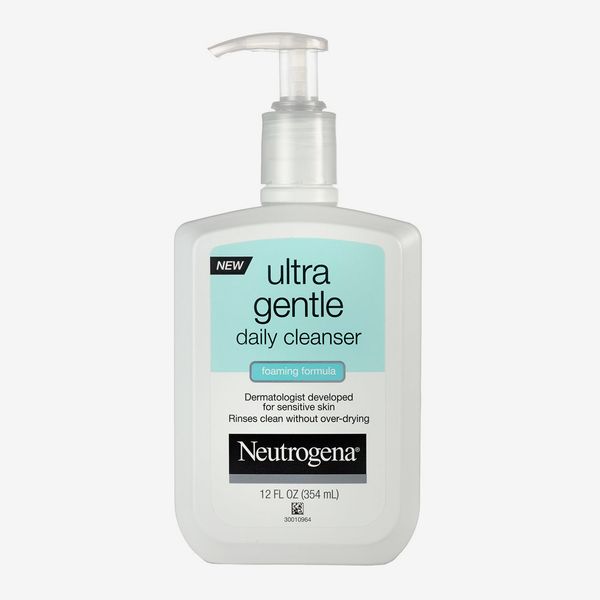
If you have reactive skin, you know that even the cleansing process has to be gentle. Zeichner and David Lortscher, a board-certified dermatologist and CEO of Curology, both recommend this foaming Neutrogena face wash for its extra-gentle ingredients. "The technology in this cleanser prevents the cleansing ingredients from compromising the integrity of the outer skin layer," says Zeichner.
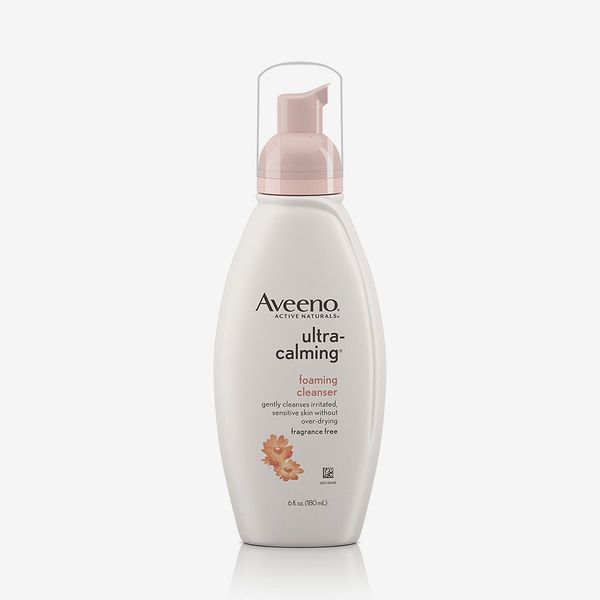
Another foaming cleanser Zeichner suggests is this one from Aveeno because it contains feverfew, a calming ingredient associated with chamomile, which has been clinically proved to reduce redness and irritation. Other perks: It's free of fragrances and hypoallergenic, too.
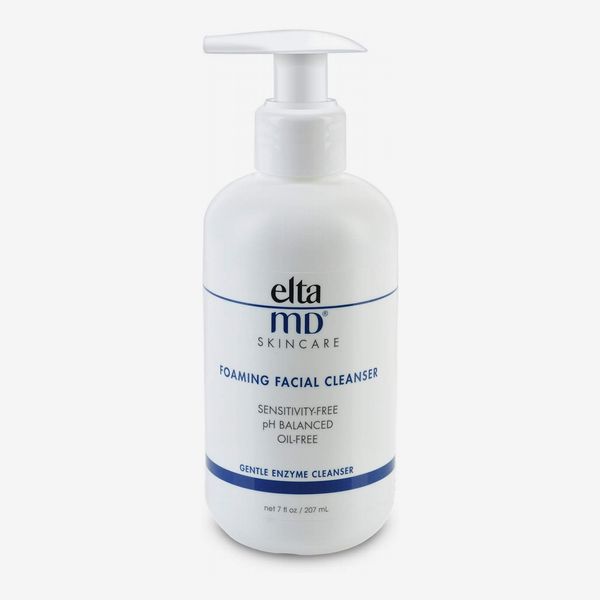
Another gentle option is EltaMD Foaming Facial cleanser, an oil- and paraben-free face wash that's formulated without additives. Miami-based dermatologist Roberta Del Campo of the Del Campo Dermatology and Laser Institute likes this one because it also gently removes makeup and oils.
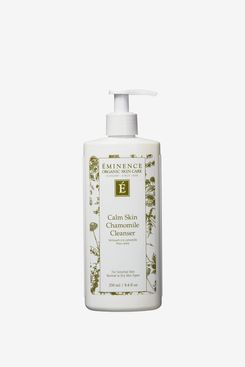
Dermatological nurse and celebrity aesthetician Natalie Aguilar recommends this cleanser as she looks for gentle, calming, and hydrating ingredients when it comes to rosacea. "It cleanses facial skin while preserving hydration and decreasing inflammation," she says. "It's cooling, revitalizing, and protective." The key ingredient, chamomile, is a favorite of Dr. Farhaad Riyaz, board-certified dermatologist and Docent's medical advisor, because "it's antibacterial and anti-inflammatory and soothes, calms, heals, de-stresses, and reduces swelling associated with rosacea." Other key ingredients, like calendula and sunflower oil, add to the formula's creamy consistency, which Aguilar adds is great for removing makeup.
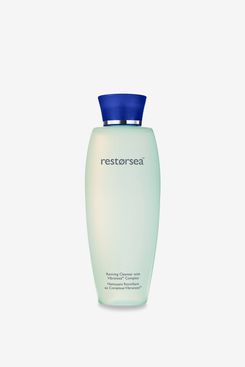
Hartman is a fan of this cleanser from Restorsea, which uses natural actives like songyi mushroom and Aquabeautine XL, which comes from the hatching fluid of baby salmon. "This potent, yet gentle cleanser is naturally derived and chemical free," he says. He also likes that it's good at removing dirt and oils and makeup but won't irritate skin, key for someone with an already compromised skin barrier.
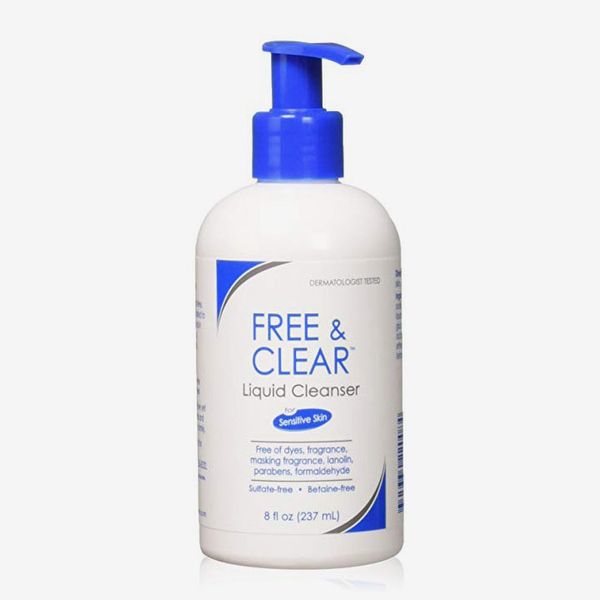
The general rule with red, rosacea-prone skin is "the less ingredients, the better," so Lortscher also suggests this Free & Clear liquid cleanser, which is noncomedogenic (so it won't clog pores) and free of common dyes, fragrances, preservatives, and chemicals.

Dr. Smita Ramanadham, a plastic surgeon who also has a skin-care brand, Skin by Dr. Smita, recommends this gentle cleanser, which uses oat amino acids that don't strip the skin and supports the skin barrier. It also contains glycerin for hydration and botanical antioxidants that help to protect skin from the elements.
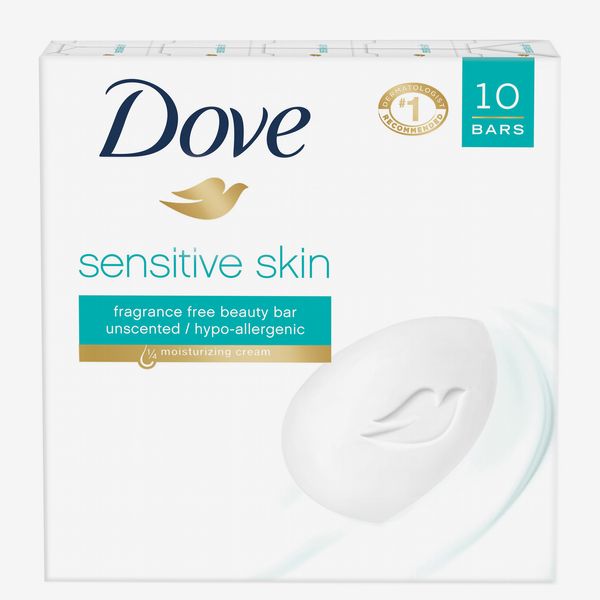
Certain ingredients found in cleansers (menthol or eucalyptol, specifically) can throw off the skin's PH level, says Zeichner, making rosacea worse. His go-to recommendation is Dove's Sensitive Skin Beauty Bar. It's a favorite of dermatologist Dr. Hadley King as well. It's a simple, skin-barrier-supporting, ultraaffordable option that you can use to cleanse both your face and body. "It uses a gentle cleansing agent and is particularly moisturizing," Zeichner says.
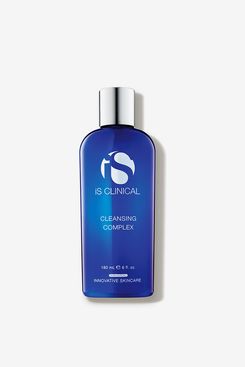
It's common for people with rosacea to also deal with acne, but it can be difficult to find a cleanser that'll clear out pores without further irritating or drying out the skin. If you're hoping to deal with both simultaneously, look for something that gently exfoliates, like this cleanser, which comes recommended by aesthetician Candace Marino. "This cleanser does an excellent deep clean without foaming up and drying out the skin," she says. It uses botanical-derived lactic, glycolic, and salicylic acid, which work together to gently exfoliate without further irritating the skin. "It's so gentle it's recommended for clients post-laser or peel," she says.
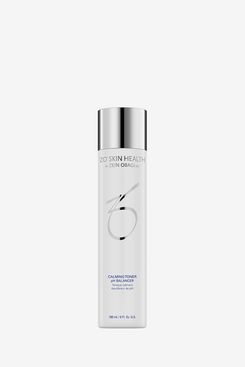
SkinSpirit aesthetic nurse practitioner Shawna Jones likes this pH balanced toner from ZO Skin Health, which she says will help soothe the skin and support the skin-barrier function. The formula has allantoin, which Dr. Riyaz says is an "anti-inflammatory that soothes, calms, heals, and reduces the irritation, redness, and sensitivity seen with rosacea." It also has sodium hyaluronate to improve hydration, which is key for people with rosacea as they tend to have a dehydrated compromised skin barrier.
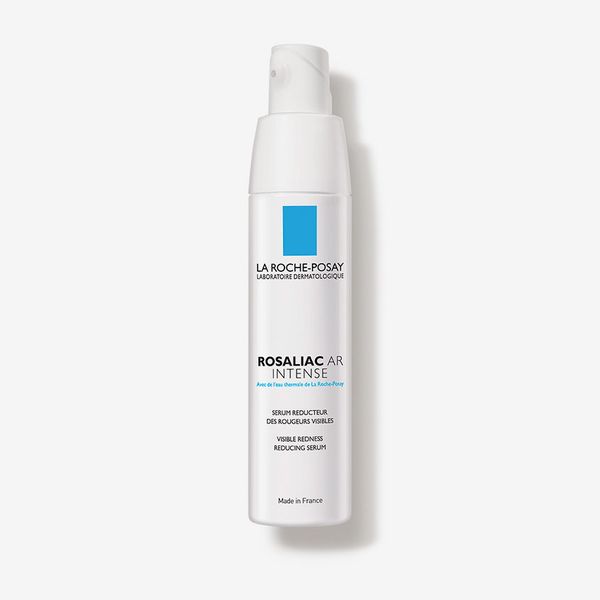
For some additional soothing after you tone, Jaliman suggests this serum specifically formulated for rosacea-prone skin from La Roche-Posay. "This visible redness-reducing serum does what it says. What's nice about it is that it's free of parabens, it's oil-free and fragrance-free, so it's really good for sensitive skin. It's made with an ingredient called ambophenol, which soothes skin."
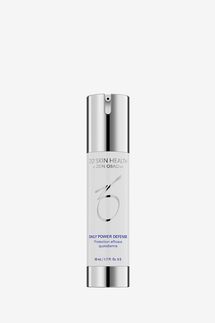
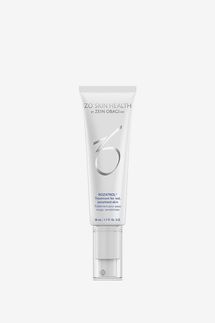
This is an expensive duo, but Jones says it will give those with rosacea the one-two punch they need. The Daily Power Defense contains ceramides, which help restore the skin barrier, as well as antioxidants, like vitamin E, that battle free radicals. The Rozatrol is specifically designed for red-sensitized skin, and Jones says it provides "additional antioxidant protection and ultramild exfoliation."
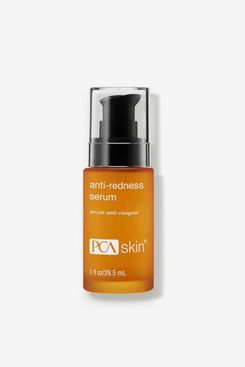
Because rosacea can make the skin very sensitive, it's often good to look for products targeted toward that. Not only is this serum calming and comforting to the skin, according to Aguilar, but, as it says in the name, it helps with the redness associated with rosacea. "It contains aldavine, capparenols, and bisabolol to reduce inflammation, redness, and hypersensitivity to external aggressors," she says.
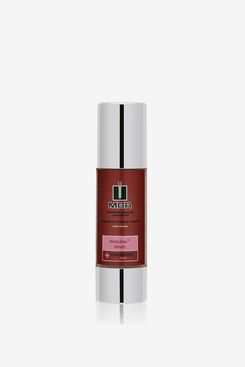
Skin-care expert and celebrity aesthetician Vicki Morav is a fan of MBR's Modukine line for rosacea. It's formulated to reduce dryness and redness and is good for sensitive or reactive skin. "This is a healing and anti-inflammatory serum that soothes and heals the most irritated skin," she says. It contains anti-inflammatory oils and hyaluronic acid that work together to balance the skin and repair the lipid barrier.
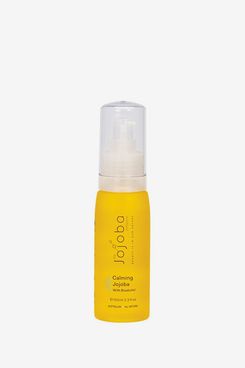
While Dr. King believes that most rosacea treatments require a prescription, there are a few over-the-counter things she recommends. In addition to products with azelaic acid, she likes this oil. "Gentle facial oils with anti-inflammatory properties, like the Jojoba Company's Calming Jojoba with Bisabolol, may be helpful for some people with rosacea," says Dr. King. The added bisabolol is in a few products on this list and helps to calm the skin.
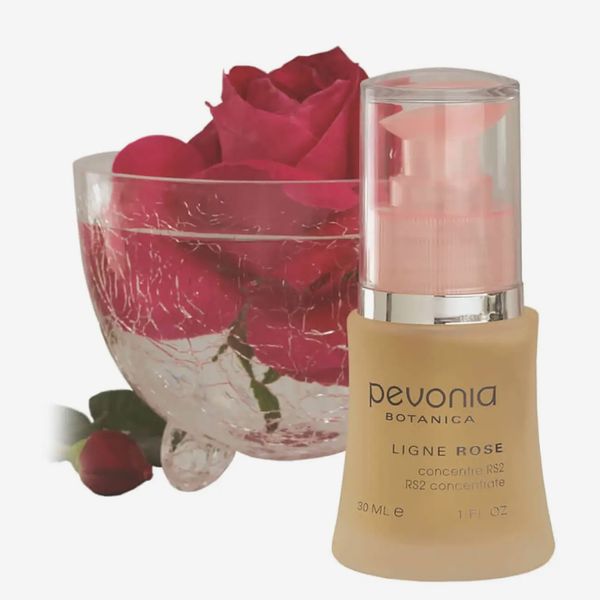
Like Dr. King, Dr. Riyaz is similarly a fan of prescription rosacea medicine, but if you have to go over-the-counter, he likes Pevonia's RS2 line designed for rosacea-prone skin. "It has anti-inflammatory, antioxidant and antimicrobial licorice, green tea, allantoin, and chamomile," all of which he says would complement a prescription. This serum has green tea, which Dr. Riyaz says is a "powerful natural anti-inflammatory, antioxidant, and antimicrobial that soothes, calms, heals, reduces inflammation and irritation, and fights free radicals, bacteria, and microbes linked with rosacea." It also contains licorice, which will help soothe, decongest, reduce irritation, heal, moisturize, and hydrate.
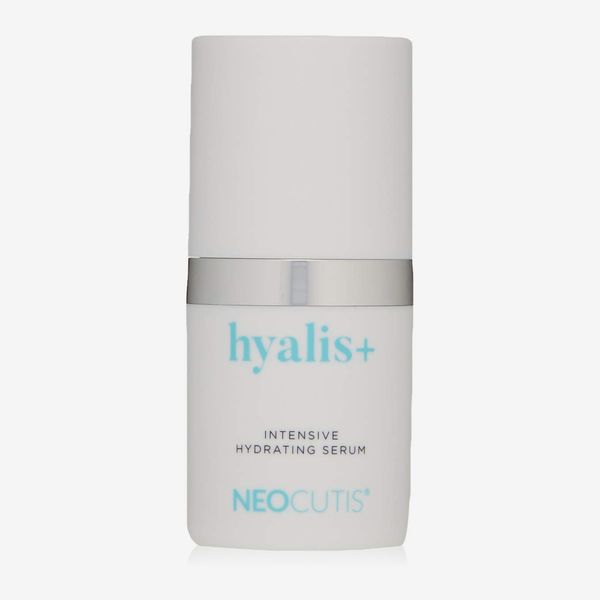
If you're prone to rosacea, you already have an impaired skin barrier — which is why Del Campo recommends this hyaluronic acid serum, which can help to fortify the skin's barrier and lock in moisture. "This hyaluronic acid serum has multiple forms of HA, which means it'll hydrate the skin more intensely," she says.
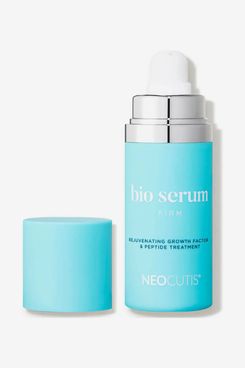
Del Campo also likes Neocutis Bio Serum, which helps to boost collagen without the use of retinoids, which can be irritating for rosacea-prone skin. "Many products that are capable of boosting collagen are unfortunately too harsh for rosacea-prone skin," she says. "This product uses human-derived growth factors (proteins that are found naturally in the skin, then synthesized in labs) to improve skin quality and repair damage, without causing any irritation."
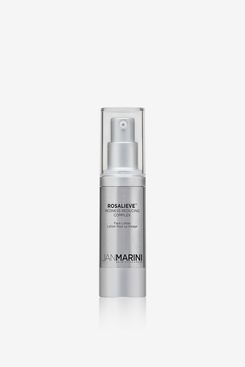
"This is by far the most compelling rosacea product I have ever worked with," says Marino of this serum, a favorite of her clients with rosacea. The anti-redness treatment uses ingredients like azelaic acid and white- and red-tea extracts, which calm and soothe skin while also helping to improve rosacea symptoms over time.
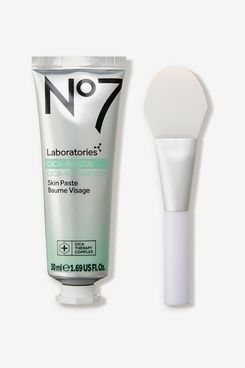
Marino also recommends this skin treatment from No7, which has a similar consistency to a mask. "This is the 911 product that every rosacea client should have on hand at all times, especially during the winter months," says Marino. This overnight treatment should be the last step in your nighttime skin-care routine and uses ingredients like centella asiatica (known for its calming properties) and ophiopogon japonicus, which helps to reinforce and maintain the skin's barrier.
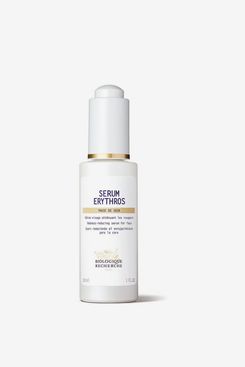
For more immediate results, Marino likes this serum that uses seven active ingredients to address visible signs of rosacea, including arnica montana, which helps to decrease inflammation and calm skin. "It has an instant effect on the skin and is a great product for ultrasensitive skin types that react easily," she says.
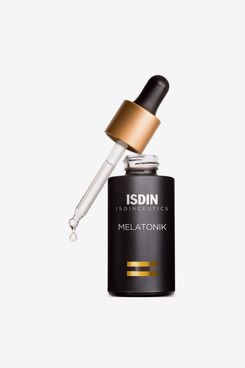
Retinols can be tricky if you have rosacea because it tends to exacerbate irritation and redness, which is why Hartman recommends bakuchiol instead. Dubbed "nature's retinol," bakuchiol offers the same benefits (increased cell turnover, helps with fine lines and wrinkles) without the negative side effects. "Isdin Melatonik is my go-to bakuchiol product," he says. "It contains vitamin E, a direct antioxidant, and melatonin, an indirect antioxidant — includes two of my holy-trinity skin-care basics. It repairs oxidative damage at night and, as a bonus, reduces the appearance of wrinkles and fine lines.
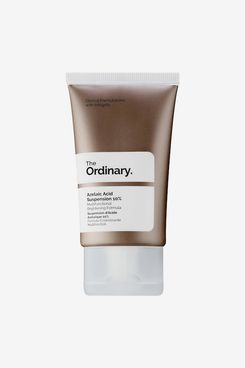
If you're dealing with other skin issues like hyperpigmentation and acne, Hartman recommends this serum from the Ordinary that will address those issues and reduce redness too. "It helps to improve brightness and reduce the appearance of blemishes and also acts as an antioxidant," he says.
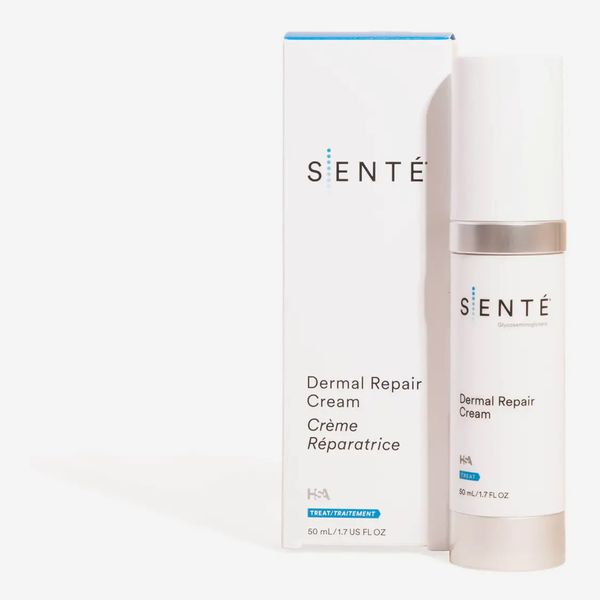
"Moisturizing is an important step of any skin-care regimen and especially important with rosacea since patients have a weakened skin barrier," says Jones. This one is made with the brand's proprietary Heparin Sulfate Analog technology, which she says is deeply hydrating. She adds, "It contains a blend of lipids that mimic the components of the skin barrier and help prevent water loss from the skin surface."
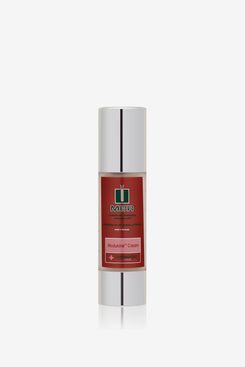
Similar to the Modukine serum above, this cream is also formulated with redness and sensitive skin in mind. In addition to the abyssinian oil and meadowfoam seed oil in the serum, it has shea butter and vitamin E, a powerful antioxidant.
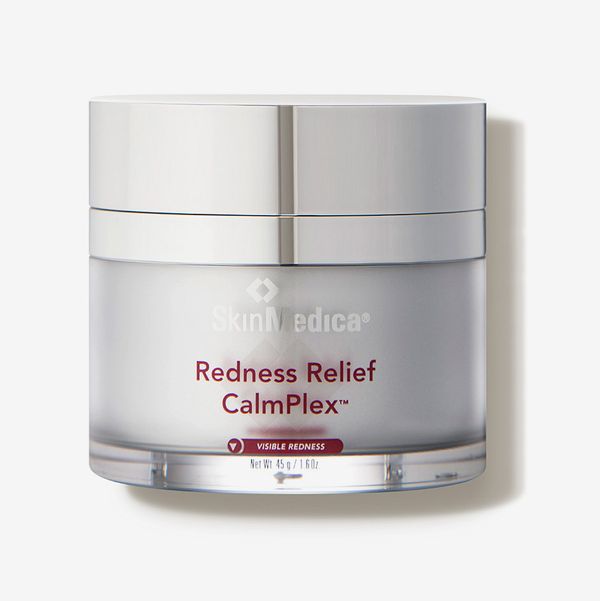
Jaliman says to look out for creams containing niacinamide (or vitamin B3), "one of my favorite ingredients to reduce redness." This one targets inflammation and weak blood vessel walls, so it's very well suited for redness and rosacea.
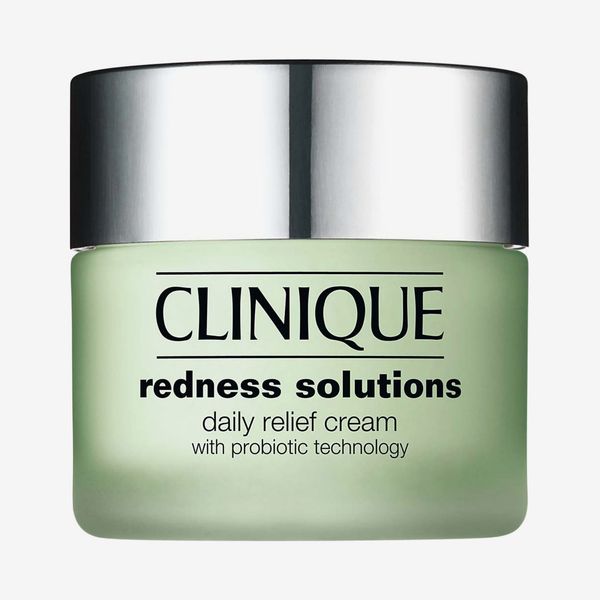
"Research indicates the possible role of a gut-skin connection in rosacea," says Lortscher, which is why probiotics might be helpful for calming your skin. If you want to dabble, Jaliman suggests this Clinique Redness Solutions cream because, she says, it's very gentle and contains probiotic technology.
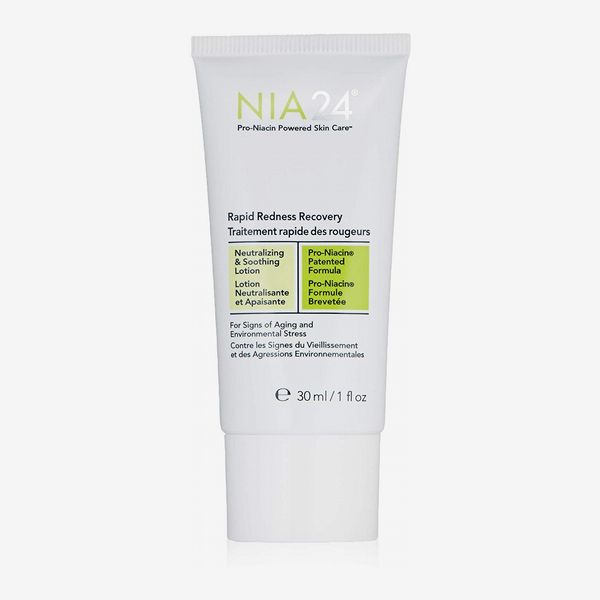
Del Campo recommends this Nia24 moisturizer, which she says both calms down and conceals any redness. "It contains niacinamide," she says, "which is calming to the skin." Plus, she says, the moisturizer itself is tinted light green, which helps neutralize redness in the face. It also uses licorice root to sooth the skin, and vitamin E to moisturize.
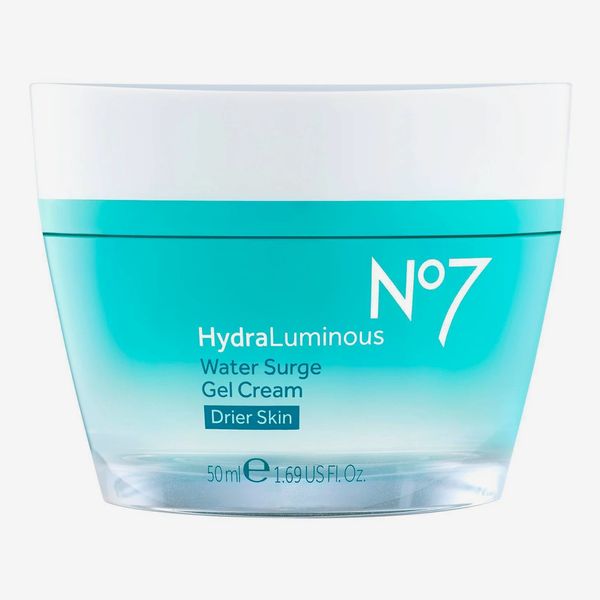
Marino likes this gel-cream moisturizer from No7 that has a lightweight texture and absorbs quickly into the skin. "This will address dryness and dehydration and help to calm irritated and red complexions," she says, noting that ingredients like vitamin C protect skin from free radicals, while vitamin E works to soothe and nourish skin.
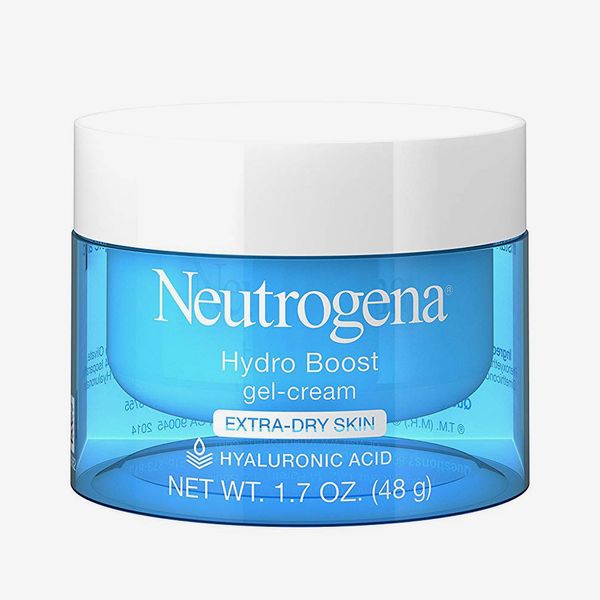
For a less pricey option, Lortscher suggests this gel cream from Neutrogena: It's hydrating (boosted with hyaluronic acid), yet fragrance-free and noncomedogenic.
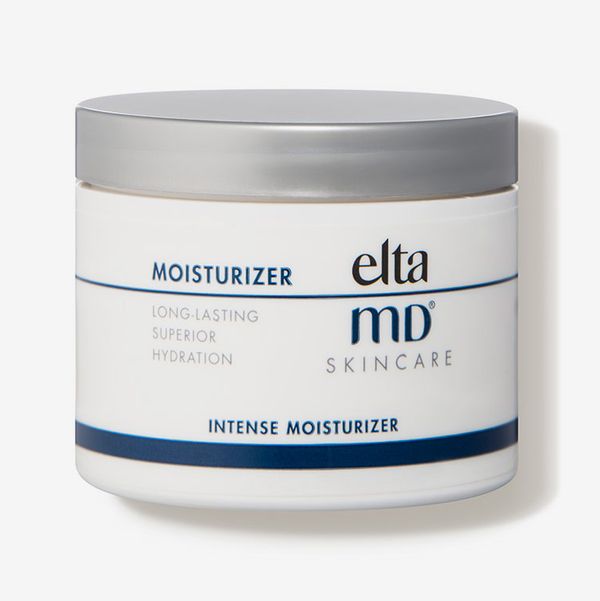
And if your skin is particularly dry and sensitive, Lortscher says, "you could try a thin layer of a heavier moisturizer in the morning to help protect your skin, such as pure petrolatum (Vaseline) or EltaMD's Intense Moisturizer."
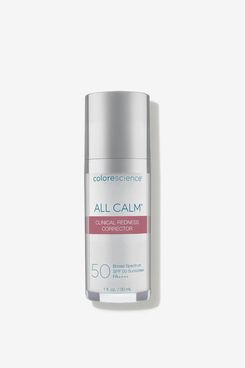
Jones recommends ditching chemical-based sunscreens for physical ones, as they could trigger a rosacea flare up. This is her favorite. "It neutralizes the appearance of redness while providing sun protection," she says. Of the ones recommended on this list, it has the highest SPF count, has a green tint to neutralize redness, and niacinamide, which not only helps with inflammation but "also helps restore the skin barrier, which helps protect the skin from temperature changes and free radicals — both big rosacea triggers," says Dr. Riyaz.
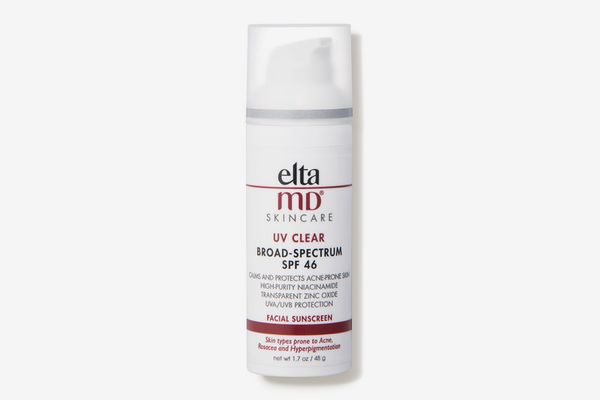
"Even on a cloudy day, UVA rays penetrate the clouds and can trigger rosacea flares," says Jaliman, which is why she suggests wearing sunscreen every day if you have rosacea or sensitive skin. "I always recommend a physical sunscreen with a high concentration of zinc oxide or titanium dioxide. It's what's used for diaper rash."
Here's one that Jaliman and other derms have recommended to us in the past, containing anti-inflammatory niacinamide.
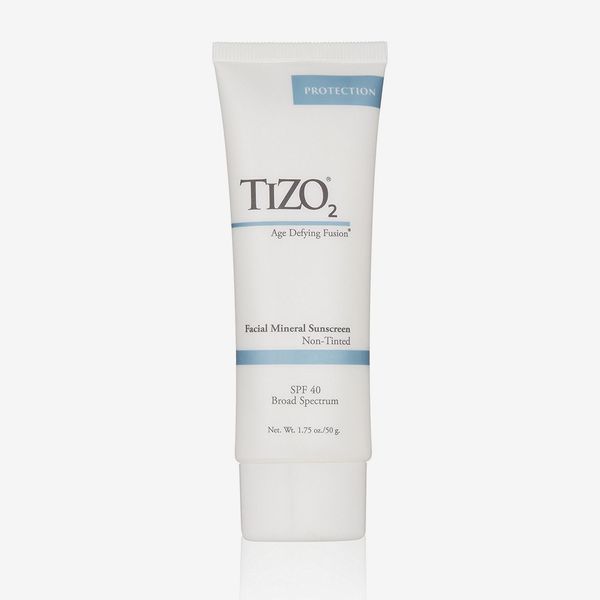
And here's another physical sunscreen that's been recommended to us again and again by derms. It's tinted, so all the better to help with any redness you may have.
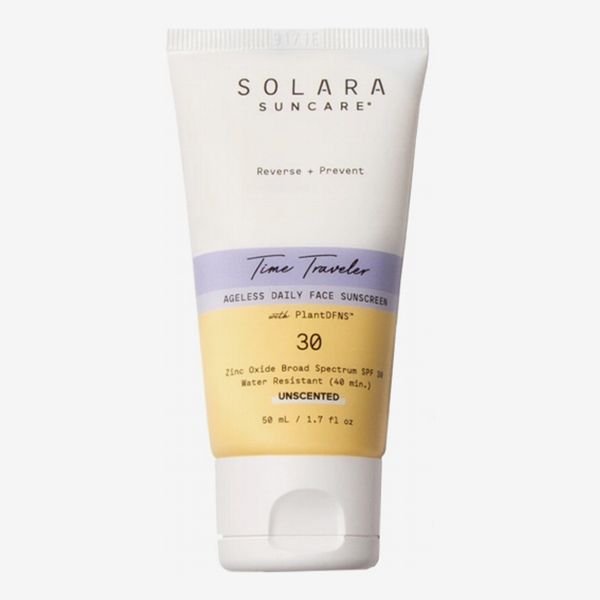
Zeichner likes this zinc-oxide-filled mineral option too, which provides broad UV protection without leaving a white cast behind. It also contains antioxidants and ceramides, which help to reinforce the skin's barrier and protect it from environmental aggressors.
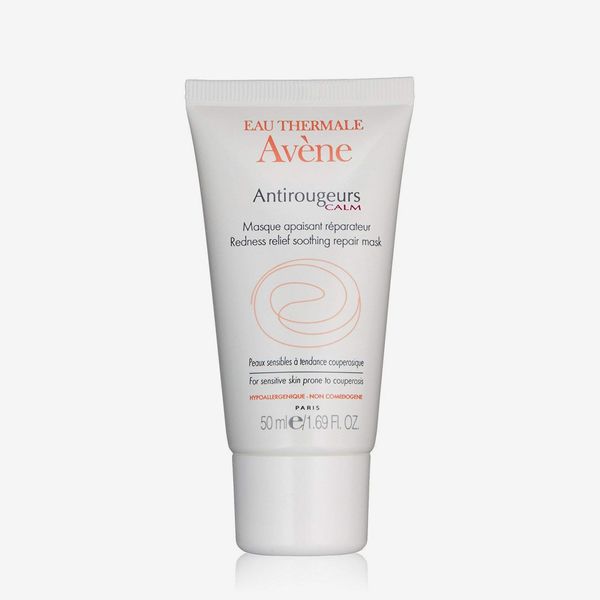
For chronic redness, a more concentrated moisturizer can also be helpful. "Thermal spring water and calming peptides help reduce facial redness," says Zeichner of this mask from Avène's Antirougeurs (or anti-redness) line.
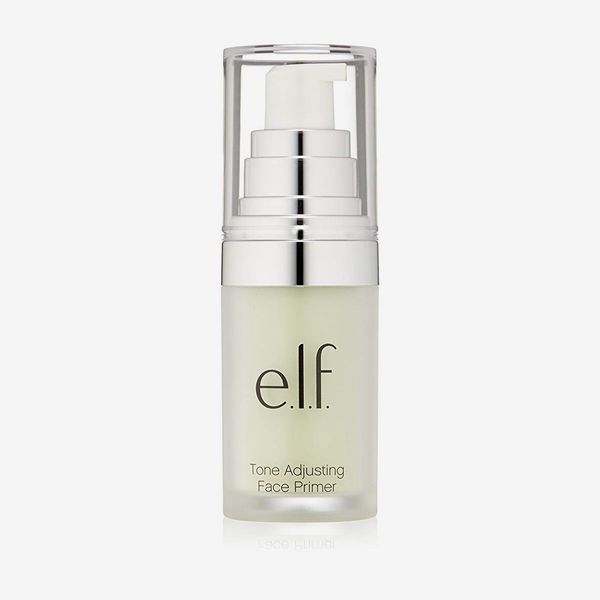
"Green tint bases can help mask the pink color of irritated or flushed skin," says Lortscher, which is why he recommends using primers or color-correcting fluids with a green tint. He suggests this one from E.l.f., which is mineral-based and inexpensive.
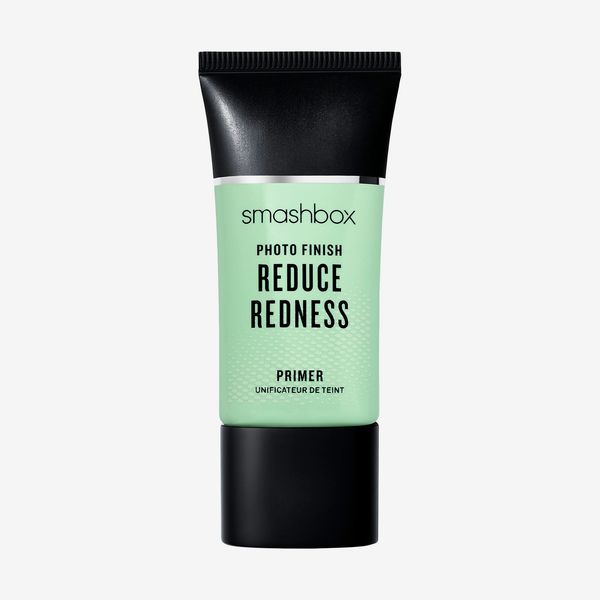
Another best-selling green-tinted primer is this Smashbox redness-reducing one that contains peptides and antioxidants.
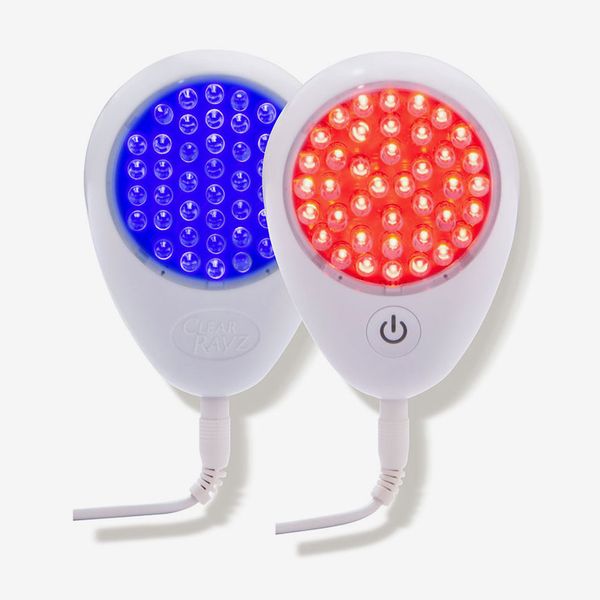
Research also shows that red LED light therapy can be beneficial for reducing inflammation. This handheld device from Quasar is FDA-approved and two-sided, so you can target acne one day (the blue side) and redness another (the red side).
The Strategist is designed to surface the most useful, expert recommendations for things to buy across the vast e-commerce landscape. Some of our latest conquests include the best women's jeans , rolling luggage , pillows for side sleepers , ultra-flattering pants , and bath towels . We update links when possible, but note that deals can expire and all prices are subject to change.
Every editorial product is independently selected. If you buy something through our links,New York may earn an affiliate commission.
What Skincare Products Are Good for Rosacea
Source: https://nymag.com/strategist/article/best-skincare-products-for-redness-and-rosacea.html
0 Response to "What Skincare Products Are Good for Rosacea"
Post a Comment